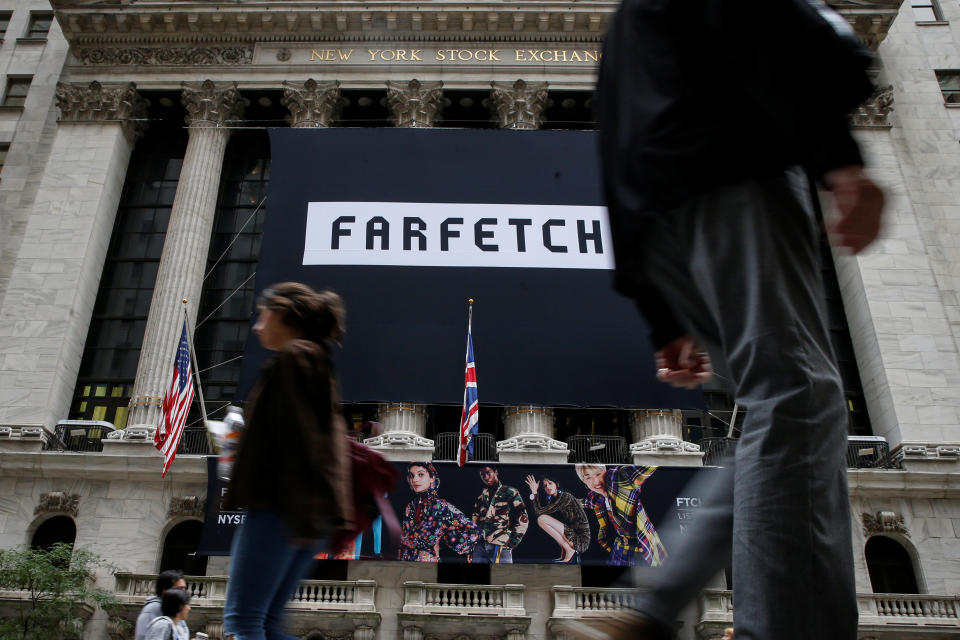Alibaba and Richemont invest $1bn in online retailer Farfetch in China push

Online fashion retailer Farfetch (FTCH) has secured a $1.1bn (£838m) backing from Chinese ecommerce giant Alibaba (BABA) and Swiss watch and jewellery group Richemont (CFR.SW).
Farfetch plans to use the investment to expand its new Chinese marketplace as demand for luxury good in the country booms, it said on Friday.
Under the agreement, Alibaba and Richemont will each invest $300m in Farfetch, and $250m each for a 25% stake in the joint venture, that will include Farfetch's marketplace operations in China.
As part of the three-way partnership, Farfetch will help upmarket and fashion brands launch their own online stores on Alibaba’s Tmall Luxury Pavilion and Tmall Global — platforms which already attract millions of Chinese consumers.
Richemont, which owns brands such as Cartier, Van Cleef & Arpels, and Chloe already operates a joint venture with Alibaba in China. The company posted a 2% decline in like-for-like sales for the three months to 30 September.
China overtook the US for the first time as Richemont’s biggest market.
The Chinese luxury-goods markets is expected to account for almost half of global sales by 2025.
READ MORE: Richest person in Europe's wealth rockets as luxury sales recharge
It comes as, COVID-19 hammered the luxury good industry as wealthy spenders delayed purchases and with travel restrictions curbing free-spending Chinese customers.
The coronavirus pandemic has also further accelerated the shift to digital selling, the teaming up of the competitors signals a desire to dominate China’s booming online luxury market.
Before the pandemic, Chinese consumer drove almost three-quarters of the luxury goods sector growth.
Louis Vuitton parent LVMH (MC.PA), Versace owner Capri Holdings Ltd (CPRI) and Coach owner Tapestry Inc (TPR) are some firms that have been able to offset lockdown-induced slumps in global fashion capitals as demand in China rose.
In October, LVMH said that strong growth in its biggest business buoyed profits in the third quarter as strong demand for Louis Vuitton and Dior helped offset steep declines elsewhere caused by COVID-19.
China’s Tencent Holdings (TCEHY), owners of WeChat and JD.com (JD) are also investors in Farfetch. The partnership gives Farfetch access to Alibaba’s 757 million users.
Separately, Artemis, the holding company of French billionaire François-Henri Pinault who owns a controlling share of Gucci-owner Kering (KER.PA), also plans to increase its stake in Farfetch, according to a joint statement.
Watch: What is inflation and why is it important?

 Yahoo Finance
Yahoo Finance 